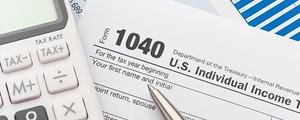Story Highlights
- Investor Optimism Index ticked up last quarter, but still subdued
- Investors' outlook sours on inflation but brightens on employment
- One in four report changing their investments because of inflation fears
WASHINGTON, D.C. -- U.S. investors' outlook for the investing climate improved slightly in the second quarter, with the Gallup Investor Optimism Index rising from +26 in February to +39 in June. This was driven largely by investors feeling more optimistic about economic growth, employment and their household income. The index would have rebounded more from its pandemic low if not for deteriorating views of inflation.
While improved from +4 a year ago, the index remains well below its +138 reading in February 2020, just before the pandemic began.

Line graph. Trend in Investor and Retirement Optimism Index from October 1996 to June 2021. The index peaked at +152 in January 2000 and reached its lowest, -81, in February 2009. After hitting a 20-year high of 138 in January 2020, the index fell to +4 in May 2020 and is now +39.
The Gallup Investor Optimism Index is a continuation of the Wells Fargo/Gallup Investor and Retirement Optimism Index, which provides its historical data. Since its inception in 1996, the index has ranged from +152 (in January 2000) to -81 (in February 2009). Investors, for this survey, are defined as adults with $10,000 or more in stocks, bonds or mutual funds, either within or outside of retirement accounts.
The latest results are based on a June 22-29 survey conducted by web using the nationally representative Gallup Panel. This was before the latest Bureau of Labor Statistics report finding that the Consumer Price Index (CPI) surged 0.9% in June to 5.4% for the previous 12 months, indicating the pace of inflation is accelerating.
Pessimism About Inflation Deepens
The Gallup Investor Optimism Index is a composite of investors' ratings of four aspects of the economy and three aspects of their personal finances and investments. Investors' outlooks for these followed differing patterns in the second quarter.
-
With inflation rising at a fast clip, investors' 12-month outlook for inflation grew worse last quarter. Already in negative territory, their net optimism score for inflation (the percentage optimistic about its direction minus the percentage pessimistic) fell 15 points to -43.
-
At the same time, investors grew more optimistic about U.S. unemployment (with net optimism rising 13 points) and economic growth (up nine points).
-
Investors also grew more optimistic about their household income (up 10 points)
-
There was no meaningful change in investors' modestly positive outlook for the stock market, or for their more robust outlooks for reaching their 12-month investment targets or 5-year investment goals.
| Q1 2021 | Q2 2021 | Change | |
|---|---|---|---|
| % | % | pct. pts. | |
| U.S. Economy (12-month outlook) | |||
| U.S. unemployment | -3 | 10 | +13 |
| U.S. economic growth | 11 | 20 | +9 |
| Stock market | 18 | 18 | 0 |
| Inflation | -28 | -43 | -15 |
| Personal Finances | |||
| 12-month household income | 28 | 38 | +10 |
| 12-month investment targets | 23 | 28 | +5 |
| 5-year investment goals | 37 | 37 | 0 |
| Gallup Panel | |||
Of the four economic ratings included in the index, inflation is the only one for which investors' outlook has not improved since the early days of the pandemic. It is also the only element about which investors remain more pessimistic than optimistic. Even before the pandemic, when the economy was strong, investors tended to be more pessimistic than optimistic about inflation.

Line graph. Trend from Q1 2018 to Q2 2021 in U.S. investors' outlook for four aspects of the economy -- economic growth, unemployment, the stock market and inflation -- based on their net optimism score. Net optimism is defined as the percentage optimistic minus pessimistic about the effect each dimension will have on the overall investment climate for the next 12 months. Net optimism was generally positive for U.S. economic growth, unemployment and the stock market throughout 2018 and 2019 and into early 2020. Confidence in economic growth and unemployment plunged in Q2 2020 into negative territory and has since partially improved, with both figures now modestly positive. Net optimism about inflation was mildly negative for most of 2018 through 2019. It also worsened in Q2 2020. After improving slightly in late 2020, it has since worsened and is now deeply negative.
Investors Expect Inflation to Last, but Few Are Shifting Investments
A separate question in the June survey asked investors whether the recent rise in consumer prices will be temporary or will last for a sustained period. A substantial majority, 72%, think it will be a sustained change, while 28% consider it temporary.
At the same time, relatively few investors (24%) foresee inflation having a major impact on the investment markets in the coming months.
| A major impact | A moderate impact | A little impact | No impact | |
|---|---|---|---|---|
| % | % | % | % | |
| Jun 22-29, 2021 | 24 | 57 | 17 | 2 |
| Gallup Panel | ||||
Sustained inflation has traditionally had a dampening effect on stock prices, as it can weaken corporate profits. Not only do consumers tend to buy less during inflationary periods, but business costs also rise.
For now, most investors report that they are not changing their investments as a result of inflation. Sixteen percent say they made such changes in the past month, while 84% say they did not. Investors with $100,000 or more invested in stocks or bonds are no more likely than lower-asset investors to report changing their investments as a hedge against inflation -- 17% versus 15%, respectively.
When asked if they would "seriously consider making changes" to their investments if inflation persists beyond the end of the pandemic, the slight majority of all investors (53%) say they would; 47% would not.
Bottom Line
Even before the latest CPI report, inflation has had economists and market analysts on edge. Not only could it slow economic growth at a critical time in the economic recovery from the pandemic, but it could also cause a decline in the stock market, further dampening consumer optimism and spending.
While investors are increasingly wary of the outlook for inflation and expect it to persist, most are not yet taking defensive action with their own investments. This inaction may partly reflect complacency on investors' part, given that the stock market had not declined as of June, despite rising inflation. It may also reflect a lack of understanding about the relationship between inflation and stock and bond prices, something the poll didn't measure.
On the other hand, investors may simply be heeding advice to stay the course through market volatility to achieve the best long-term results. Whether that continues if the stock market responds negatively to the latest inflation news, as suggested by Tuesday's market decline, remains to be seen.
To stay up to date with the latest Gallup News insights and updates, follow us on Twitter.
Learn more about how the Gallup Investor Optimism Index works.




